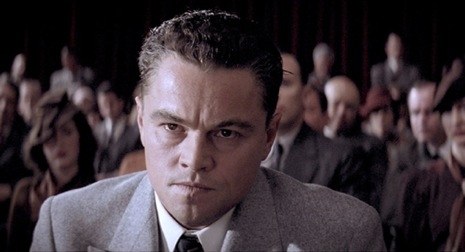Shakespearian plays have been adapted for the screen time and time again. “Othello”, “Hamlet”, “Romeo and Juliet”, “The Tempest”, the list goes on an on and the familiarity for a viewer with these stories is established before they ever enter the theatre. “Coriolanus” is a lesser know, and lesser adapted, play Shakespeare wrote. Well-known actor Ralph Fiennes (Voldemort in Harry Potter) in his first directorial effort has adapted “Coriolanus”, with a screenplay by John Logan into a modern-day political film, while maintaining the original shakespearian dialogue.
Coriolanus takes place in a contemporary Rome, but not Rome to be exact. This is a fictitious place, ruled by fictitious people and in the midst of a war with fictitious rebels, led by Gerard Butler (Machine Gun Preacher) as Tullus Aufidius. The story opens with the Roman state declaring a state of emergency and Caius Martius Coriolanus (Ralph Fiennes) removing civil liberties.  The people of Rome are starving, and protestors swarm the streets, attempting to fight their way into the grain depot. The people want change to occur, and are feverishly fighting for it to happen–and they see the proud and greatly admired soldier Martius as the greatest obstacle. The inner turmoil of the city is not the only problem, as the rebel army continues to fight Rome; struggling against the government. This is the story of Coriolanus, a tale of two warring entities that will soon find themselves aligned in one war with Martius Coriolanus at the forefront. Coriolanus is a hero for a brief moment, primed for political office, until his cold and prideful demeanor make him an enemy of the people. Banished from the city he finds himself with the rebels, ready to fight against those who turned themselves on their most faithful follower.
The people of Rome are starving, and protestors swarm the streets, attempting to fight their way into the grain depot. The people want change to occur, and are feverishly fighting for it to happen–and they see the proud and greatly admired soldier Martius as the greatest obstacle. The inner turmoil of the city is not the only problem, as the rebel army continues to fight Rome; struggling against the government. This is the story of Coriolanus, a tale of two warring entities that will soon find themselves aligned in one war with Martius Coriolanus at the forefront. Coriolanus is a hero for a brief moment, primed for political office, until his cold and prideful demeanor make him an enemy of the people. Banished from the city he finds himself with the rebels, ready to fight against those who turned themselves on their most faithful follower.
Ralph Fiennes’ Coriolanus can be a most gripping film, but it also has the unfortunateness of a Shakespearian play where unless you fully invest early on to long monologue’s and accepting the Bard’s speech it can pass slowly. A great deal is always occurring, and small pieces of the story and the politics of such are constantly being revealed.  Coriolanus’ mother Volumnia, played by Vanessa Redgrave, is riveting in the role. She is the power behind the man, the one who instigates much of what he does and how he reacts to situations. It is also her that will eventually be his downfall–nothing shocking for those familiar with Shakespeare. Ralph Fiennes delivers a magnetic performance in the coolly emotional role of Coriolanus. The steely looks he gives, the righteous indignation shown in his eyes towards the people, he becomes Coriolanus. Gerard Butler’s Aufidius feels neglected, and the true hatred between the two men never fully realized. Fiennes and Redgrave keep Coriolanus alive and interesting.
Coriolanus’ mother Volumnia, played by Vanessa Redgrave, is riveting in the role. She is the power behind the man, the one who instigates much of what he does and how he reacts to situations. It is also her that will eventually be his downfall–nothing shocking for those familiar with Shakespeare. Ralph Fiennes delivers a magnetic performance in the coolly emotional role of Coriolanus. The steely looks he gives, the righteous indignation shown in his eyes towards the people, he becomes Coriolanus. Gerard Butler’s Aufidius feels neglected, and the true hatred between the two men never fully realized. Fiennes and Redgrave keep Coriolanus alive and interesting.
The film may be an adaptation of an old Shakespearian play but it could not be more relevant in today’s society and the conflicts that abound in third and first world nations. Coriolanus is at the core a story about politics, power, and pride. Mingle the three together with societal unrest by the people and you have the backbone of many a coup that has occurred to overthrow governments, and tyrants, or one in the same. Coriolanus speaks of the actions at play with warring groups, the usage of constant media footage via television’s speaks to the means in which information is passed, and manipulated, over such affairs in a modern society. The ending that results in the death of the main character, after he is seen as he who betrayed the rebels, boasts the likings of a rebellious army who will never be satisfied with a treaty, their greed is far too great and needs too prideful. Coriolanus is not the most well-known of Shakespeare’s work but it is the most time-appropriate in today’s world. Ralph Fiennes and John Logan have created a well-thought modern adaptation, that clearly resonates the original texts meaning for a modern day society.
More information on the film from AFI FEST: Coroilanus.
Credits:
Director: Ralph Fiennes
Screenwriter: John Logan
Producer: Ralph Fiennes, John Logan, Gabrielle Tana, Julia Taylor-Stanley, Colin Vaines
Executive Producer: Marko Miskovic, Will Young, Robert Whitehouse, Christopher Figg, Norman Merry, Christine Langan, Anthony Buckner
Director of Photography: Barry Ackroyd, BSC
Editor: Nicolas Gaster
Music: Ilan Eshkeri
Production Designer: Ricky Eyres
Cast: Ralph Fiennes, Gerard Butler, Brian Cox, Vanessa Redgrave, Jessica Chastain
![]()

